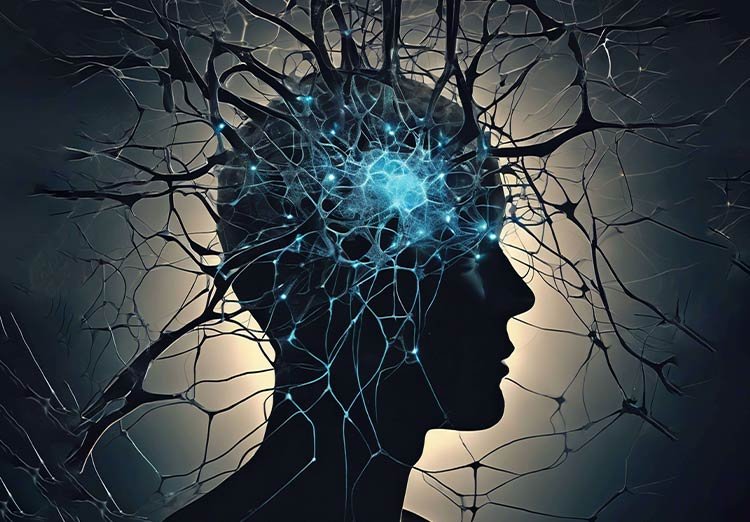Introduction to Feminine Energies
Feminine energies represent a set of qualities and attributes traditionally associated with the feminine aspect of existence. Historically, various cultures and belief systems have recognized and valued these energies, often linking them to concepts of intuition, empathy, nurturing, and creativity. Unlike the rigid gender binaries, feminine energies transcend biological sex and can be present in every individual, regardless of their gender identity.
In ancient civilizations, such as those of Egypt, Greece, and India, feminine energies were revered and personified through goddesses like Isis, Athena, and Saraswati. These deities embodied wisdom, fertility, and artistic expression, highlighting the cultural significance of feminine energies. Similarly, in Eastern philosophies like Taoism and Hinduism, the balance between yin (feminine) and yang (masculine) or Shakti (female principle) and Shiva (male principle) underscores the importance of integrating both energies for holistic well-being.
Modern interpretations of feminine energies continue to emphasize their universal applicability. Feminine energies are not confined to women but are intrinsic qualities that everyone can cultivate. These energies are characterized by a deep sense of intuition, an ability to empathize and connect with others, a nurturing disposition, and a propensity for creativity and artistic expression. They play a crucial role in fostering emotional intelligence, building relationships, and promoting a sense of community.
Understanding feminine energies involves recognizing their fluid and inclusive nature. They encourage individuals to embrace vulnerability, practice compassion, and harness their innate creativity. By doing so, people can achieve a more balanced and integrated sense of self, contributing to personal growth and collective harmony. The exploration of feminine energies is, therefore, a journey towards self-discovery and societal well-being, offering insights that are relevant across various contexts and cultures.
The Characteristics and Qualities of Feminine Energies
Feminine energies encompass a range of traits that contribute to a holistic and balanced approach to life and interpersonal relationships. One of the primary characteristics is receptivity, which involves being open to new experiences, ideas, and emotions. This quality allows individuals to listen attentively and empathize with others, fostering deeper connections and understanding.
Emotional intelligence is another key attribute of feminine energies. It involves the ability to recognize, understand, and manage one’s own emotions, as well as the emotions of others. This trait is essential for effective communication and conflict resolution, as it enables individuals to navigate complex emotional landscapes with sensitivity and grace.
Intuition, often associated with feminine energies, plays a crucial role in decision-making processes. Unlike logical reasoning, intuition relies on gut feelings and instinctual insights. This quality allows individuals to make quick, yet informed decisions based on subtle cues and underlying patterns that may not be immediately apparent.
Nurturing is a prominent characteristic of feminine energies. It involves providing care, support, and encouragement to others, helping them grow and thrive. This quality is evident in various roles, such as parenting, mentoring, and caregiving, where the focus is on fostering a positive and supportive environment.
Collaboration is another hallmark of feminine energies. It emphasizes teamwork, cooperation, and collective problem-solving. In professional and personal settings, this quality facilitates the sharing of ideas and resources, leading to more innovative and effective solutions.
In contrast, masculine energies are often associated with traits such as assertiveness, independence, and analytical thinking. While these qualities are valuable, they are complemented by the nurturing, intuitive, and collaborative aspects of feminine energies. Together, they create a balanced and harmonious dynamic that enhances both personal and professional interactions.
The Role of Feminine Energies in Personal Growth and Relationships
Embracing feminine energies can significantly contribute to personal development and the enhancement of relationships. These energies, often characterized by nurturing, empathy, and emotional intelligence, play a crucial role in fostering self-awareness and interpersonal dynamics. By tapping into feminine energies, individuals can cultivate a deeper understanding of themselves and others, which is essential for personal growth and the formation of meaningful connections.
Self-awareness is the foundation of personal growth. It involves recognizing one’s emotions, strengths, weaknesses, and values. Feminine energies encourage introspection and self-reflection, allowing individuals to gain insights into their inner world. This heightened self-awareness enables more authentic self-expression and decision-making aligned with one’s true self, leading to a more fulfilling and purposeful life.
Emotional intelligence, another key aspect of feminine energies, involves the ability to perceive, understand, and manage emotions in oneself and others. High emotional intelligence fosters better communication and conflict resolution skills, which are vital for healthy relationships. By embracing feminine energies, individuals can become more attuned to their emotions and those of others, leading to more empathetic and supportive interactions.
Nurturing and empathetic behaviors, hallmarks of feminine energies, can strengthen interpersonal relationships. These behaviors create a sense of safety and trust, encouraging open and honest communication. When individuals feel understood and valued, it enhances their connection and commitment to one another, fostering a sense of community and belonging.
To cultivate and harness feminine energies, consider incorporating the following practices into your daily life:
1. **Mindfulness meditation:** Spend a few minutes each day practicing mindfulness to increase self-awareness and emotional regulation.
2. **Active listening:** Pay close attention to what others are saying without interrupting, and reflect on their words to show empathy.
3. **Journaling:** Regularly write about your thoughts and feelings to deepen your self-understanding and emotional processing.
4. **Acts of kindness:** Engage in small, thoughtful actions to nurture and support those around you.
5. **Seek feedback:** Ask for feedback from trusted friends or colleagues to gain insights into your behavior and areas for improvement.
By integrating these practices, individuals can effectively harness their feminine energies, leading to personal growth and more enriching relationships. The nurturing, empathetic, and emotionally intelligent qualities associated with feminine energies can transform both personal and interpersonal experiences, creating a more harmonious and connected existence.
Balancing Feminine and Masculine Energies
The concept of balancing feminine and masculine energies within an individual is rooted in the idea that everyone possesses both types of energies, regardless of gender. Feminine energies are often associated with qualities such as intuition, empathy, and nurturing, while masculine energies are linked to attributes like assertiveness, logic, and action. Achieving a harmonious balance between these energies is crucial for living a more fulfilling and well-rounded life.
When feminine and masculine energies are in equilibrium, individuals can navigate life’s challenges with greater ease and confidence. This balance fosters emotional resilience, mental clarity, and a sense of inner peace. For example, someone with a balanced approach may use their masculine energy to set and achieve goals while relying on their feminine energy to build meaningful relationships and understand their emotions.
Mindfulness, meditation, and self-reflection are effective strategies for integrating both feminine and masculine energies. Mindfulness practices help individuals stay present and aware of their internal states, allowing them to recognize when they are leaning too heavily on one type of energy. Meditation aids in cultivating a sense of inner calm and balance, providing a space to explore and harmonize these energies. Self-reflection encourages individuals to examine their behaviors and thought patterns, identifying areas where they may need to nurture their feminine or masculine sides.
Real-life examples and case studies highlight the benefits of a balanced approach. Consider a business leader who combines assertiveness with empathy, making decisions that are both strategic and considerate of their team’s well-being. This balance can lead to greater professional success and a more supportive work environment. Similarly, in personal relationships, individuals who balance their energies tend to communicate more effectively and build stronger connections.
In conclusion, achieving a balance between feminine and masculine energies is essential for personal growth and overall well-being. By incorporating mindfulness, meditation, and self-reflection into daily practices, individuals can create a harmonious blend of these energies, leading to a more fulfilling and successful life.



